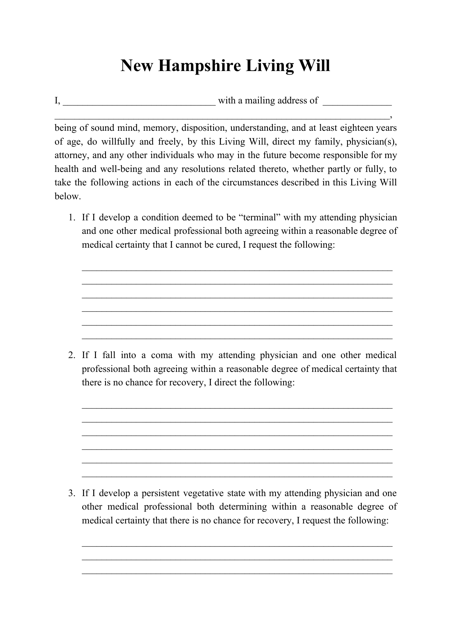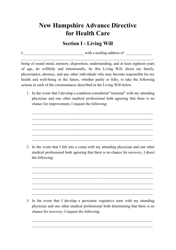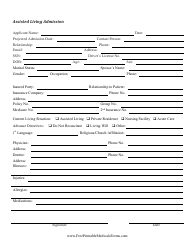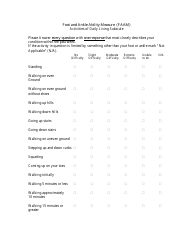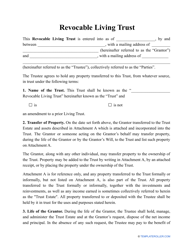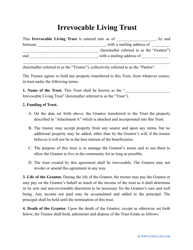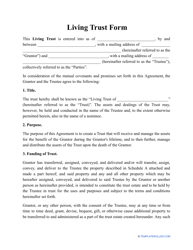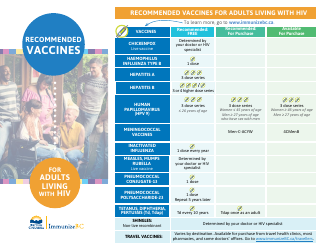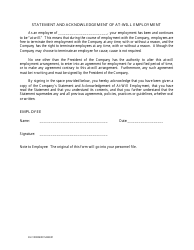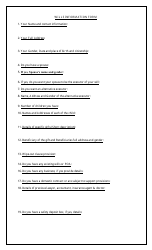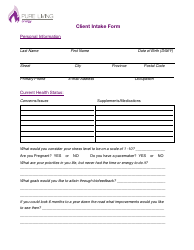Living Will Form - New Hampshire
A New Hampshire Living Will - sometimes confused with an Advance Directive - is crucial for people who wish to protect themselves in case they can no longer communicate their wishes relating to their health and therefore can not actively take part in making any decisions for their own lives. Any competent adult is eligible to execute a will at any time in order to direct the providing, withholding, or withdrawal of life-sustaining treatments. Make your own form with our online form builder .
A basic Living Will template ( found below ) can be used to outline the steps people want to be taken in all the worst-case scenarios - including pain management, instructions on personal grooming and bathing, and any steps regarding the desired religious, spiritual and emotional support. It allows an individual to legally refuse treatment, even if this might lead to death. A person can also indicate their wish to donate their organs and tissues after death.
A New Hampshire Living Will is defined by Section 137-J:2 of the New Hampshire Revised Statutes . The document must be signed by two (2) or more witnesses, neither of whom are the individual's agent, spouse or heir.
What Is a New Hampshire Living Will?
A Living Will is a legal document intended for ensuring and specifying an individual's end-of-life wishes regarding health care and treatment in the event of their permanent or temporary incapacity. Common reasons for a will include a decline in health, the possibility of surgery or hospitalization or getting diagnosed with a terminal condition.
It is a good idea for all adults to have a will even in the event this document is not mandatory. If something is to happen, the medical professionals in charge of treating the individual have the biggest say in what happens to them once they can no longer communicate their will.
How to Make a Living Will in New Hampshire?
A legal Living Will form may be used in the State of New Hampshire to make an individual's wishes about the medical treatment or other care they would or would not want to receive in case of an emergency known to the medical staff and their caregivers.
The individual can print out the will nominating a personal representative, establishing a party for life-sustaining consultations and specifying their wishes regarding treatment and artificially provided food and hydration.
The personal representative - or a health care proxy - is an elected agent tasked with making the important medical decisions if no other means of communication with the individual are available.
